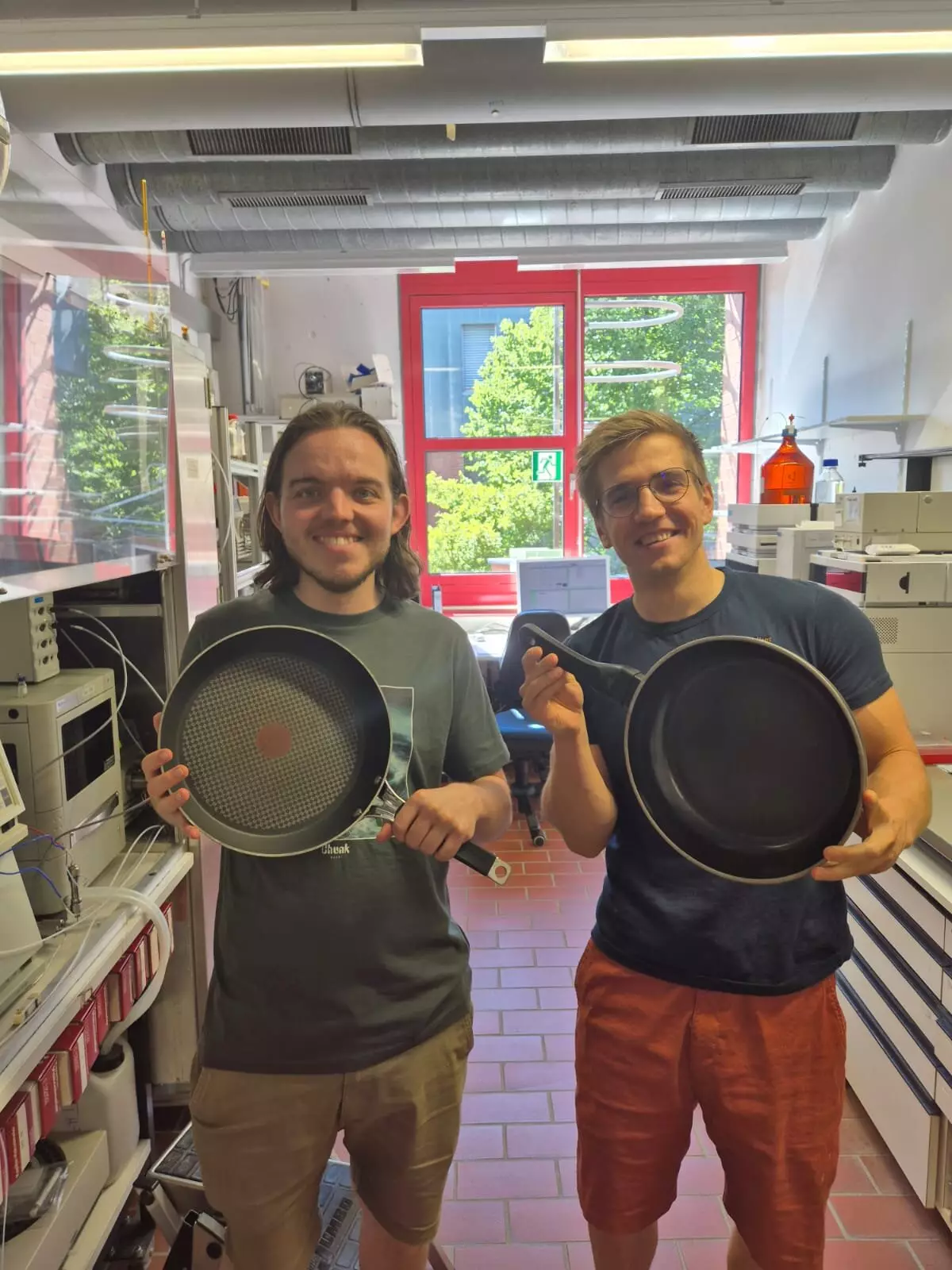In an impressive alliance, chemists from the University of Bayreuth and researchers from Berlin have ignited a potential revolution in polymer science. They have developed a groundbreaking series of fluorinated polymers designed to degrade twenty times faster than traditional non-fluorinated counterparts. This significant innovation represents a potential pathway to mitigate the environmental risks posed by PFAS, commonly referred to as “forever chemicals,” notorious for their endurance in nature and the alarming ubiquity in our ecosystems—from remote Antarctic ice to the bloodstream of newborns.
The Dilemma of Convenience vs. Environmental Safety
Fluorinated compounds have woven themselves into the fabric of modern living, providing unparalleled functionality in everyday items like raincoats and non-stick cookware. The characteristics that make these materials desirable—water repellence and low friction—come with a considerable environmental cost. As these polymers resist degradation, they accumulate in landfills and natural habitats, raising pressing concerns regarding their impact on wildlife and human health. The duality of their usefulness and potential hazards manifests an urgent need for safer alternatives in consumer products, making the Bayreuth team’s findings all the more potent in their implications.
The Science Behind the Change
At the core of this transformation lies the innovative incorporation of ester bonds into the design of these new polymers. Typically, fluorinated plastics are known for their resistance to degradation, yet the introduction of ester bonds allows these new materials to shatter that norm. This clever chemistry not only retains the beneficial non-stick properties synonymous with fluorinated plastics but also importantly paves the way for accelerated degradation processes. As noted by Prof. Dr. Alex J. Plajer, this paradoxically speedy degradation occurs thanks to the fluorine itself, which acts as an enabler rather than a hindrance.
A Circular Economy for Plastics
The implications of this research extend far beyond laboratory walls. With a focus on sustainability, the new class of polymers carries the promise of transitioning the plastics industry toward a circular economy, a critical shift given the limited nature of fluorine resources. Researchers Christoph Fornacon-Wood and Prof. Dr. Plajer emphasize that future fluorinated polymer designs must incorporate built-in features for degradation and recycling. By doing so, they are not merely addressing the current accumulation of hazardous materials but are also preemptively designing solutions that will ensure the longevity and accessibility of fluorine for future generations.
Rethinking Tomorrow’s Polymers
The work being done in Bayreuth encapsulates a broader movement within the scientific community aimed at rethinking the materials that define modern life. As awareness heightens regarding the environmental costs of conventional plastics, this novel approach to fluorinated materials could redefine our relationship with these compounds. Encouraging manufacturers to prioritize sustainable designs might not just lead to a more environmentally friendly product lifecycle but also foster an industry-wide commitment to innovation, responsibility, and enhancement of human and ecological health.
In light of these advancements, stakeholders—from policymakers to consumers—must remain vigilant and supportive of research that champions sustainability in materials science. The emergence of these faster-degrading fluorinated polymers is not merely a scientific milestone but a call to action in the face of a growing environmental crisis that demands innovative, forward-thinking solutions.


Leave a Reply